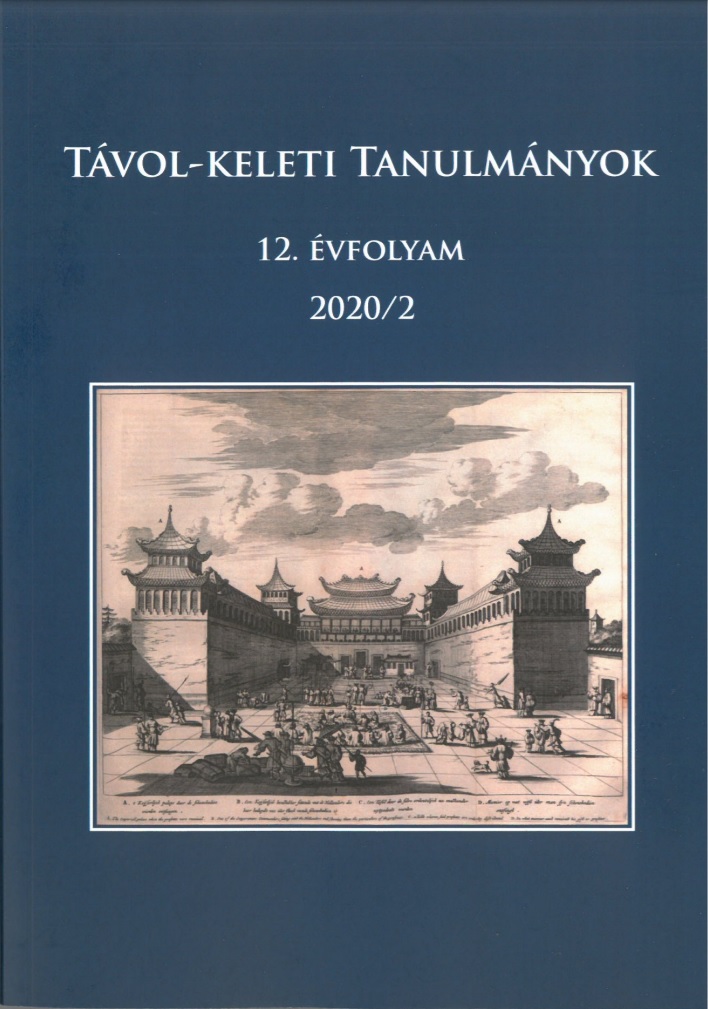A jelenkori amerikai–kínai politikai retorika összehasonlító elemzése az amerikai évértékelő beszédek (2017–2020) és a 19. pártkongresszus pártfőtitkári beszámolója alapján
Megjelent 2021-07-12
Kulcsszavak
- amerikai évértékelő beszéd,
- 19. pártkongresszus,
- politikai diskurzus,
- retorika,
- Donald Trump
- Xi Jinping ...Tovább
Hogyan kell idézni
Copyright (c) 2021 a szerző(k)

This work is licensed under a Creative Commons Attribution-NonCommercial 4.0 International License.
Absztrakt
A tanulmány célja, hogy bemutassa az amerikai és kínai politikai diskurzus különbségeit, megvizsgálja, hogy az amerikai és kínai politikusok miként szólnak a hallgatósághoz, milyen verbális és nonverbális eszközökkel élnek. Ennek vizsgálata az amerikai és a kínai politikai élet aktuálisan legjelentősebb eseményein elhangzott felszólalások – Donald Trump évértékelő beszédeinek (2017–2020) és Xi Jinping 19. pártkongresszus előtt elmondott beszámolójának – elemzésével történik. A vezetők beszédeiben a következő retorikai eszközöket vizsgálom: 1) a múlt megjelenítése; 2) a jövő megjelenítése; 3) egység; 4) humor, irónia; 5) a kapcsolatteremtés kiszélesítése; 6) metakommunikációs eszközök.
Hivatkozások
- /2017-es évértékelő: http://stateoftheunion.onetwothree.net/texts/20170228.html
- /2017-es évértékelő: https://www.youtube.com/watch?v=9o_WDqG2x_4
- /2017-es pártfőtitkári beszámoló: http://www.qstheory.cn/llqikan/2017-12/03/c_1122049424.htm
- /2017-es pártfőtitkári beszámoló: http://www.xinhuanet.com/politics/19cpcnc/2017-10/27/c_1121867529.htm
- /2018-as évértékelő: http://stateoftheunion.onetwothree.net/texts/20180130.html
- /2018-as évértékelő: https://www.youtube.com/watch?v=M4EdX-OuUFM&t=401s
- /2019-es évértékelő http://stateoftheunion.onetwothree.net/texts/20190205.html
- /2019-es évértékelő: https://www.youtube.com/watch?v=TXep_uf-ESY
- /2020-as évértékelő: http://stateoftheunion.onetwothree.net/texts/20200204.html
- /2020-as évértékelő: https://www.youtube.com/watch?v=zNECVmfJtxc&t=361s
- Arisztotelész, 1999. Rétorika. Budapest: Telosz Kiadó.
- Bull, Peter 1986. „The Use of Hand Gesture in Political Speeches: Some Case Studies.” Journal of Language and Social Psychology 5: 103–110. Online: http://jls.sagepub.com/content/5/2/103
- Jilupian: Zhongguo gongchandang di shiyi ci quanguo daibiao dahui 纪录片:中国共产党第十一次全国代表大会 [Dokumentumfilm: A Kínai Kommunista Párt 11. kongresszusa] (https://v.qq.com/x/page/j01357jas69.html, 2020.08.26.).
- Jordán Gyula 2015. „A Kínai Népköztársaság alkotmányainak történeti áttekintése.” In: Salát Gergely (szerk.): A kínai alkotmány. Budapest: Typotex Kiadó.
- Meet 34-year-old Stephen Miller, Trump's longest-serving senior adviser and mastermind of his most inhumane immigration policies” (https://www.businessinsider.com/who-is-stephen-miller-trump-speechwriter-immigration-adviser-2018-1#stephen-really-knows-how-to-capture-his-voice-former-white-house-press-secretary-sean-spicer-said-15, 2020.08.26.).
- Miller, Alice 2012. The Road to the 18th Party Congress. China Leadership Monitor 36.
- National Congress of the Communist Party”Institute for Security & Development Policy: (https://isdp.eu/publication/nccpc-national-congress-communist-party/, 2020.08.26.).
- Nilsen, Don L. F. 1990: The Social Functions of Political Humor. Journal of Popular Culture 35–47.
- Patapan, Haig – Wang, Yi 2018. The Hidden Ruler: Wang Huning and the Making of Contemporary China. Journal of Contemporary China 27: 109: 47–60.
- Pécseli Király Imre 2017. Bevezetés a retorikába két könyvben. Budapest: Anyanyelvápolók Szövetsége – Trezor Kiadó.
- Pomian, Krzysztof 2009. „Memory Wars.” In: Swoboda, Hannes – Wiersma, Jan Marinus (eds.). Politics of the Past. The Use and Abuse of History. Belgium: The Socialist Group in the European Parliament, 81–85.
- „Presidential Department Descriptions” (https://obamawhitehouse.archives.gov/participate/internships/departments, 2020.08.26.).
- Teten, Ryan Lee 2007. „We the People”. The „Modern” Rhetorical Popular Address of the Presidents during the Founding Period. Political Research Quarterly 60/4: 669–682.
- „The complete history of the US State of the Union address” (https://www.businessinsider.com/state-of-the-union-address-history-timeline-2019-1#the-longest-state-of-the-union-was-delivered-by-president-bill-clinton-in-2000-clocking-in-at-about-89-minutes-16, 2020.08.26.).
- „The perilous high-wire act of writing speeches for Donald Trump” (https://www.washingtonpost.com/lifestyle/style/why-writing-speeches-for-donald-trump-is-a-perilous-high-wire-act/2018/01/26/9476a6d4-01f2-11e8-9d31-d72cf78dbeee_story.html, 2020.08.26.).
- „The president’s State of the Union speech: Why it matters” (https://share.america.gov/presidents-state-of-union-why-it-matters/, 2020.08.26.).
- „The State of The Union Is Trump’s Biggest Speech. Who Writes It?” (https://www.nytimes.com/2020/02/03/us/politics/trump-state-of-the-union.html, 2020.08.26.),
- „Trump impeachment: A very simple guide” (https://www.bbc.com/news/world-us-canada-39945744, 2020.08.26.).
- „Wang Huning tongzhi jianli” 王沪宁同志简历 [Wang Huning elvtárs életrajza] (http://www.xinhuanet.com/politics/19cpcnc/2017-10/25/c_1121856317.htm, 2020.08.26.).
- „Who Really Writes Trump’s Speeches? The White House Won’t Say” (https://nymag.com/intelligencer/2018/01/who-really-writes-trumps-speeches-white-house-wont-say.html, 2020.08.26.).
- Zhongguo gongchandang zhangcheng 中国共产党章程 [A Kínai Kommunista Párt alkotmánya]. (http://www.12371.cn/special/zggcdzc/zggcdzcqw/#disanzhang).„中共中央政策研究室主要职能” (Zhonggong zhongyang zhengce yanjiu shi zhuyao zhineng) A Központi Bizottság Politikai Kutatási Hivatalának fő funkciói (http://www.china.com.cn/cpc/2011-04/15/content_22369278.htm, 2020.08.26.).
- Zickel, Emilie – Gagich, Melanie 2018. A Guide to Rhetoric, Genre, and Success in First-Year Writing. Ohio: CSU.

